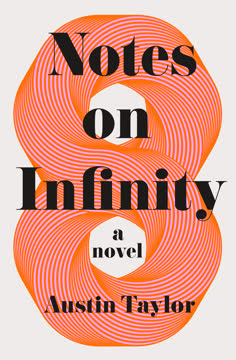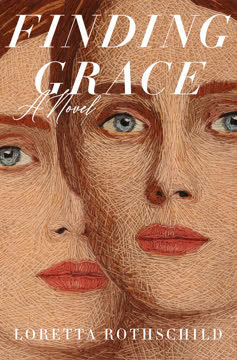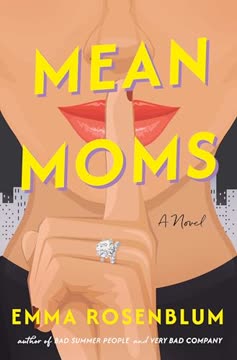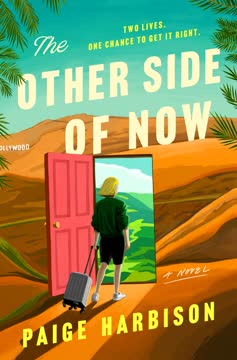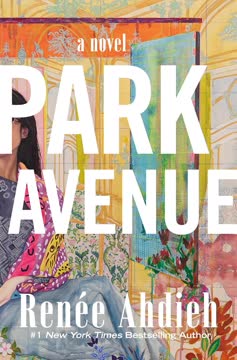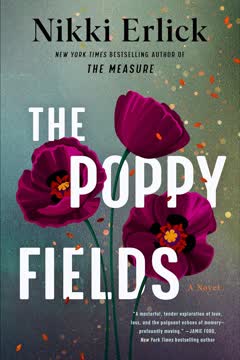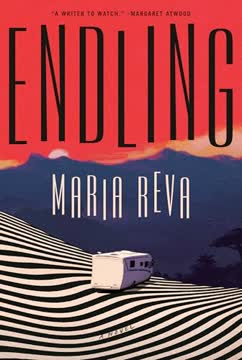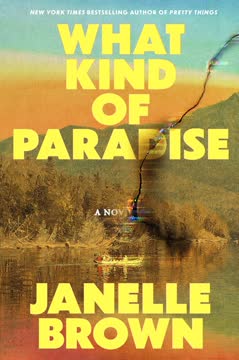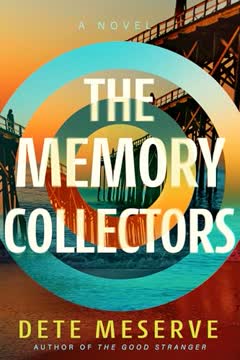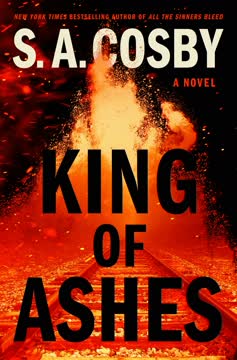Plot Summary
Mirror, Mask, and Mania
Zoe Kyriakidis, a brilliant but fragile young scientist, stares into a mirror before a prestigious talk at Harvard, struggling to compose herself. The mirror reflects not just her image but her fractured sense of self—caught between the expectations of her family, her own ambition, and the fear that she is an imposter. The ritual of putting on makeup becomes a metaphor for donning the mask she must wear to survive in the high-pressure world of elite science. As she prepares to step on stage, the boundaries between confidence and terror blur, foreshadowing the emotional and ethical challenges ahead.
Rivalry in the Lab
Zoe's journey begins in the crucible of Harvard's chemistry department, where she meets Jack Leahy, a mysterious and gifted student. Their initial interactions are defined by a subtle, intellectual rivalry—each trying to outdo the other in organic chemistry lectures and office hours. The competitive energy between them is both exhilarating and isolating, setting the stage for a relationship that will oscillate between collaboration and conflict. The lab becomes a battleground for recognition, and the seeds of both partnership and future betrayal are sown.
Games and Ghosts
As Zoe navigates her academic and social life, her past and family dynamics come into sharper focus. Childhood memories, especially of her father's world of male-dominated science, shape her sense of belonging and insecurity. Meanwhile, Jack's own troubled background—marked by poverty, trauma, and a relentless drive to escape—remains largely hidden but deeply influential. Both are haunted by ghosts: Zoe by the need to prove herself in a world that doubts her, Jack by the scars of his upbringing. Their connection deepens, but so do the unspoken wounds that will later drive them apart.
The Spark of Obsession
Zoe and Jack's rivalry evolves into a partnership as they begin to collaborate on a groundbreaking theory about the epigenetic basis of aging. Their intellectual synergy is electric, and the thrill of discovery becomes an addiction. They spend long hours in the lab, pushing each other to new heights, and the boundaries between work and personal life blur. The possibility of changing the world—and achieving immortality, in a sense—becomes their shared obsession. Yet, beneath the surface, the pressure mounts, and the first cracks in their relationship begin to show.
Mentors and Mothers
Both Zoe and Jack seek validation from mentors—Zoe from her parents and female professors, Jack from legendary scientists and, indirectly, from Zoe herself. The gendered expectations of science weigh heavily on Zoe, who feels she must be both brilliant and inoffensive. Jack, meanwhile, is driven by a need to prove his worth in a world that has always underestimated him. Their mentors offer both support and pressure, and the influence of family—especially Zoe's mother—remains a constant, shaping their choices and self-perceptions.
The First Betrayal
As their project gains momentum, the need for resources and recognition intensifies. Jack, desperate to secure their future, goes behind Zoe's back to approach a powerful professor and to run unauthorized experiments. This first act of secrecy is justified as a necessary risk, but it sets a precedent for the ethical compromises to come. Zoe, meanwhile, is torn between her loyalty to Jack and her own ambition. The partnership is tested, and the seeds of mistrust are planted, even as their scientific work reaches new heights.
The Partnership Forms
With the support of influential mentors and a successful pitch to venture capitalists, Zoe and Jack found Manna, a biotech startup aimed at curing aging. Their partnership is formalized, and they assemble a team—including Carter, a charismatic business mind, and Divya, a well-connected premed. The company's early days are marked by idealism, camaraderie, and a sense of invincibility. Zoe becomes the public face, while Jack leads the lab. The dream of changing the world seems within reach, but the pressures of leadership and the demands of investors begin to strain their relationship.
The Cost of Genius
The relentless pursuit of scientific and commercial success takes a toll on everyone. Zoe develops unhealthy coping mechanisms—overwork, disordered eating, and eventually substance abuse. Jack, too, is consumed by the need to deliver results, hiding his own health issues and ethical lapses. The team's personal lives unravel as the company grows, and the line between dedication and self-destruction blurs. The cost of genius is revealed to be not just professional risk, but profound personal suffering.
The Startup Dream
Manna becomes a media sensation, with Zoe celebrated as a woman in STEM and Jack mythologized as a mad genius. The company raises millions, moves into a gleaming Kendall Square office, and attracts the attention of major pharmaceutical firms. Yet, the myth of meritocracy is exposed as fragile: success depends as much on image, connections, and luck as on true innovation. The pressure to maintain the illusion of progress leads to further ethical compromises, and the dream of immortality begins to curdle into something darker.
Fame, Fraud, and Fallout
As Manna's claims come under scrutiny, internal whistleblowers and external critics raise alarms about the validity of the science. Zoe, increasingly isolated and addicted, struggles to hold the company together and maintain her own sanity. Jack, unable to deliver on the promises they've made, resorts to data manipulation and secrecy. The partnership that once seemed unbreakable is now defined by lies and mutual dependence. When the truth finally comes out, the fallout is swift and brutal: lawsuits, media frenzy, and the collapse of everything they've built.
The Cracks Appear
The consequences of their actions become inescapable. Jack's guilt and shame lead him to the brink, while Zoe faces public vilification, legal jeopardy, and the loss of her identity as a scientist. Friends and colleagues abandon them, and the once-glamorous world of biotech turns hostile. The narrative shifts from triumph to tragedy, as the cost of ambition and the dangers of unchecked belief are laid bare. Both must confront the reality of their choices and the limits of redemption.
Collapse and Confession
Unable to live with the weight of his deception, Jack takes his own life, leaving behind a confession that exonerates Zoe but cannot undo the damage. Zoe enters rehab, faces criminal charges, and endures a public trial. The story becomes a media spectacle, with Zoe cast alternately as villain and victim. In court, she is forced to confront not only the facts of the case but the deeper truths about herself, her relationship with Jack, and the nature of scientific ambition. The verdict is not guilty, but the sense of loss is overwhelming.
Judgment and Aftermath
In the aftermath, Zoe is left to pick up the pieces of her life. The world moves on, but she remains haunted by Jack's memory, the collapse of her dreams, and the question of whether she was complicit or merely naïve. The media, former colleagues, and even her own family offer little comfort. The myth of the genius founder is shattered, and the story becomes a cautionary tale about the perils of ambition, the seduction of fame, and the fragility of trust.
The Raven Returns
Zoe, now a pariah in the scientific community, struggles to find purpose. She is approached by a young scientist seeking her expertise, and the possibility of redemption flickers. The story comes full circle, as Zoe is forced to confront the ghosts of her past, the limits of forgiveness, and the enduring allure of discovery. The raven—a symbol of loss, memory, and the impossibility of return—hovers over the narrative, reminding her (and us) that some wounds never fully heal, but that life, and science, go on.
A New Beginning
In the final pages, Zoe tentatively re-engages with science, mentoring a new student and rediscovering the joy of inquiry. The story ends not with triumph or despair, but with a sense of humility and hope: the recognition that knowledge is always provisional, that ambition must be tempered by ethics, and that the pursuit of understanding is both infinite and deeply human.
Characters
Zoe Kyriakidis
Zoe is the novel's protagonist—a gifted young scientist whose ambition is matched only by her insecurity. Raised in the shadow of her father's academic success and her mother's social expectations, Zoe is both fiercely independent and desperate for approval. Her partnership with Jack is the axis around which her life spins: intellectually exhilarating, emotionally fraught, and ultimately tragic. Zoe's journey is one of self-discovery, as she grapples with the costs of genius, the seduction of fame, and the meaning of integrity. Her psychological arc moves from confidence to collapse to a tentative, hard-won humility.
Jack Leahy
Jack is Zoe's intellectual equal and eventual cofounder of Manna. His background is marked by poverty, trauma, and a relentless drive to escape his circumstances. Jack's brilliance is shadowed by deep wounds—he is both a survivor and a saboteur, capable of great insight and great deception. His relationship with Zoe is both a source of salvation and destruction. Jack's inability to reconcile his ambition with his ethics leads to the novel's central betrayal and his own tragic end. He is a study in the dangers of unchecked genius and the human need for connection.
Carter Gray
Carter is Manna's business mind—a charming, well-connected student who bridges the worlds of science and commerce. He is both a friend and a rival to Jack, and his romantic involvement with Zoe adds further complexity. Carter's motivations are pragmatic: he seeks security, recognition, and a place in the world of power. Ultimately, he is pushed out of Manna, but his testimony and perspective provide a counterpoint to the idealism and self-destruction of Zoe and Jack. Carter represents the compromises and calculations required to survive in the world of startups.
Divya Kaur
Divya is a premed student with powerful connections, brought into Manna for her access to venture capital. She is both a symbol of the startup world's reliance on image and networking, and a foil to Zoe's more earnest ambition. Divya's presence highlights the gendered and racial politics of science and business, as well as the ways in which credit and ownership are contested. Ultimately, she is pushed out, but her role underscores the transactional nature of the biotech world.
Alex Kyriakidis
Alex is Zoe's older brother, a successful scientist in his own right. He provides emotional support, practical advice, and a model of achievement that both inspires and intimidates Zoe. Their relationship is marked by both rivalry and deep affection. Alex's involvement in Manna and his later testimony at Zoe's trial highlight the importance of family, loyalty, and the limits of what can be known about those we love.
Margaret Kyriakidis (Zoe's Mother)
Margaret is a Southern transplant who brings both warmth and high expectations to her family. She is a constant presence in Zoe's life, offering both comfort and criticism. Her influence is felt in Zoe's self-presentation, her sense of duty, and her struggle to balance ambition with vulnerability. Margaret's role is to remind Zoe—and the reader—of the costs of striving and the importance of care.
Professor Brenna
Brenna is a fictionalized version of a Nobel-level scientist, representing both the glory days of science and its current limitations. He offers Zoe and Jack a lab, resources, and a model of intellectual courage. Yet, he is also distant, checked out, and ultimately unable to save them from themselves. Brenna's presence is both inspiring and cautionary—a reminder that genius is not enough, and that the structures of science can both enable and destroy.
Phoebe
Phoebe is Zoe's public speaking coach and later Manna's PR lead. She is a stabilizing force, helping Zoe navigate the demands of fame and crisis. Phoebe's role is to manage the narrative, both internally and externally, and to provide a voice of reason when others are losing their heads. She represents the often-invisible labor required to keep ambitious projects afloat.
Mira Joshi
Mira is a junior scientist at Manna whose warnings about the lab's practices are ignored. Her diaries become crucial evidence in Zoe's trial, highlighting the dangers of siloed work, lack of oversight, and the marginalization of those who speak up. Mira's perspective is a reminder of the ethical responsibilities that come with power and the importance of listening to dissenting voices.
Lily Harmon
Lily is a young PhD student who seeks out Zoe after the scandal, eager to learn from her ideas despite the controversy. Her presence at the novel's end offers a glimmer of hope: the possibility that knowledge, mentorship, and the pursuit of truth can survive even the most spectacular failures. Lily represents renewal, humility, and the enduring allure of science.
Plot Devices
Dual Protagonist Structure
The novel alternates between Zoe's and Jack's points of view, allowing the reader to see the same events through different psychological lenses. This structure deepens the emotional complexity, highlights the misunderstandings and secrets that drive the plot, and underscores the theme of partnership as both salvation and destruction.
Unreliable Narration and Self-Deception
Both Zoe and Jack are unreliable narrators, not only to the reader but to themselves. Their self-deceptions—about their own motives, the validity of their work, and the nature of their relationship—drive the story's central conflicts. The gradual revelation of Jack's data manipulation and Zoe's complicity (or naiveté) is handled through shifting perspectives, confessions, and external documents (emails, news articles, court transcripts).
Metafictional Elements and Media Framing
The novel incorporates media coverage, op-eds, court documents, and social media commentary, blurring the line between fiction and reality. This device exposes the ways in which narratives are constructed, reputations are made and unmade, and truth is mediated by public perception. The use of a TED talk, magazine features, and viral news stories situates the personal drama within a broader cultural context.
Scientific Metaphor and Symbolism
The science of aging and the quest for immortality serve as both literal and metaphorical engines for the plot. The epigenetic theory of aging, the manipulation of data, and the pursuit of a "cure" become symbols for the human desire to transcend limits, the dangers of hubris, and the inevitability of loss. Recurring motifs—mirrors, masks, ravens, storms—underscore the themes of memory, identity, and the impossibility of return.
Tragic Structure and Classical Allusion
The novel follows a classical tragic arc: the rise of gifted protagonists, their hubristic overreach, the unraveling of their achievements, and the final reckoning. Allusions to myth (Icarus, Gilgamesh, Genesis) and literature (Dickinson, Poe) situate the story within a tradition of cautionary tales about the limits of human striving.
Analysis
Notes on Infinity is a dazzling, devastating exploration of ambition, genius, and the human longing to transcend mortality. Through the intertwined stories of Zoe and Jack, Austin Taylor dissects the myth of the scientific prodigy and the seductive promise of the startup world. The novel exposes the costs of unchecked ambition: the ethical compromises, personal sacrifices, and psychological toll exacted by the pursuit of greatness. It interrogates the gendered and classed dynamics of science, the dangers of believing one's own hype, and the ways in which truth is constructed and contested in the age of media spectacle. Ultimately, the book is a meditation on the limits of knowledge, the necessity of humility, and the enduring hope that, even after catastrophe, the pursuit of understanding—and the possibility of redemption—remains. Taylor's narrative is both a cautionary tale and a love letter to science, reminding us that the quest for infinity is as perilous as it is irresistible.
Last updated:
FAQ
Synopsis & Basic Details
What is Notes on Infinity about?
- Ambitious Scientific Partnership: Notes on Infinity follows Zoe Kyriakidis and Jack Leahy, two brilliant Harvard undergraduates who forge an intense intellectual partnership to develop a groundbreaking anti-aging theory and therapeutic. Their journey takes them from competitive organic chemistry classes to founding a high-stakes biotech startup, Manna, aiming to revolutionize human mortality.
- The Price of Innovation: The narrative explores the immense pressures of the scientific and startup worlds, detailing the ethical compromises, personal sacrifices, and psychological toll exacted by their relentless pursuit of success. It delves into the complexities of ambition, the seduction of fame, and the blurred lines between genius and deception.
- A Cautionary Tale: Ultimately, the novel becomes a poignant exploration of truth, trust, and identity as their venture unravels amidst fraud allegations, media scrutiny, and profound personal tragedy. It questions the nature of scientific integrity and the human desire to transcend natural limits.
Why should I read Notes on Infinity?
- Deep Psychological Insight: Readers seeking a profound exploration of human ambition, self-deception, and the psychological toll of high-stakes environments will find Zoe and Jack's intertwined narratives compelling. The novel offers a raw, unflinching look at their internal struggles and coping mechanisms.
- Engaging Ethical Dilemmas: The story masterfully navigates complex ethical questions surrounding scientific integrity, data manipulation, and the commercialization of groundbreaking research. It prompts readers to consider the responsibilities of innovators and investors in a world hungry for revolutionary solutions.
- Rich Thematic Layers: Beyond the thrilling plot of a biotech startup, Notes on Infinity delves into universal themes of mortality, identity, love, and betrayal, enriched by literary allusions and scientific metaphors. It's a thought-provoking read that resonates long after the final page.
What is the background of Notes on Infinity?
- Elite Academic Setting: The story is deeply rooted in the competitive, high-pressure environment of Harvard University and the burgeoning biotech hub of Kendall Square. This setting provides a backdrop for intense intellectual rivalry, the pursuit of groundbreaking research, and the rapid transition from academia to startup culture.
- Scientific & Philosophical Context: The novel draws heavily on real-world scientific concepts, particularly in epigenetics and anti-aging research (e.g., Yamanaka factors, telomeres), using them fictitiously to explore the philosophical implications of extending human life. It engages with fundamental questions about what it means to be human and the inevitability of death.
- Startup Culture Critique: Notes on Infinity offers a critical lens on contemporary startup culture, highlighting its emphasis on hype, rapid fundraising, and the cult of the "founder." It examines the pressures from venture capitalists and the media to deliver "moonshot" ideas, often at the expense of scientific rigor and personal well-being.
What are the most memorable quotes in Notes on Infinity?
- "It doesn't matter if she remembers how she did it before because she will never be able to do it like that again because that Zoe, the before Zoe, is dead." (Chapter 1): This quote powerfully establishes Zoe's fractured identity and the irreversible impact of her experiences, foreshadowing the profound personal transformation and loss she will undergo throughout the narrative. It highlights the theme of self-reinvention and the death of innocence.
- "I don't want to live forever. I just don't want to die." (Chapter 10): Jack's poignant confession reveals a core motivation behind his relentless pursuit of anti-aging research, distinguishing his desire from a simplistic wish for immortality. This Jack Leahy quote encapsulates the human fear of oblivion and the existential dread that drives much of the novel's scientific ambition.
- "The difference [between tragedy and comedy] is entirely in the framing." (Chapter 49): Uttered by Jack to Zoe amidst their legal battles, this line offers a profound meta-commentary on the narrative itself and the subjective nature of perception. It underscores the novel's exploration of unreliable narration and how external forces (like media and public opinion) shape the interpretation of events, even personal ones.
What writing style, narrative choices, and literary techniques does Austin Taylor use?
- Intimate, Stream-of-Consciousness Prose: Taylor employs a close third-person perspective, often blurring into stream-of-consciousness, particularly for Zoe. This style immerses the reader directly into the characters' anxious thoughts, internal monologues, and emotional states, making their psychological journeys intensely personal and immediate.
- Fragmented and Non-Linear Storytelling: The narrative frequently jumps between past and present, incorporating flashbacks, internal reflections, and external documents (emails, news headlines, court transcripts). This non-linear approach mirrors the characters' fractured memories and the chaotic nature of their lives, creating a sense of suspense and gradually revealing the full scope of the fraud and its emotional impact.
- Subtle Symbolism and Allusion: Taylor weaves in rich symbolism, such as recurring motifs of mirrors, masks, snakes, and specific literary allusions (Gilgamesh, Icarus, Emily Dickinson). These elements deepen the thematic resonance, inviting readers to interpret the characters' struggles within broader mythological and philosophical contexts, enhancing the Notes on Infinity symbolism and literary analysis.
Hidden Details & Subtle Connections
What are some minor details that add significant meaning?
- Zoe's Mother's Rules: Margaret Kyriakidis's seemingly innocuous rules, like "Long neck, shoulders back" or "No slouching," are deeply ingrained in Zoe's psyche, shaping her posture and public persona. This detail highlights the pervasive influence of parental expectations on Zoe's self-presentation and her constant effort to appear composed and "inoffensive" in male-dominated spaces, a key aspect of Zoe Kyriakidis character analysis.
- Jack's Black Eye and Scars: Jack's recurring black eye, initially dismissed as a "bar fight" injury, and his numerous smaller scars, are subtle indicators of a violent and troubled past, hinting at deeper trauma and resilience. This detail foreshadows his capacity for both self-destruction and fierce protection, revealing layers of Jack Leahy motivations beyond simple ambition.
- The Jefferson Lab Chimney Story: Jack's anecdote about the lead-lined chimney used to "detect souls" is a seemingly throwaway detail that introduces the novel's core philosophical debate about consciousness and the soul. It subtly foreshadows the scientific hubris of Manna's quest for immortality and Zoe's later reflection on whether souls are "made of stuff," linking to Notes on Infinity themes.
What are some subtle foreshadowing and callbacks?
- The "Snake" Motif: The image of a "snake twisting itself around her neck" in Zoe's opening scene, symbolizing her fear and suffocation, subtly foreshadows the later revelation of the snake tattoo on Jack's shoulder. This recurring motif connects Jack to the idea of temptation, betrayal, and the mythical serpent in Eden, hinting at the eventual Notes on Infinity fraud and the loss of innocence.
- Jack's "Leftward Lean": Jack's distinctive "leftward lean" is noted early on, initially attributed to his left-handedness. This physical quirk subtly foreshadows his eventual moral "lean" towards deception and his unconventional, often rebellious, approach to science and life, providing a hint for Jack Leahy character analysis.
- Gilgamesh Allusions: Carter's text about Gilgamesh and Zoe's later rereading of the epic subtly foreshadow the narrative's tragic arc. Gilgamesh's quest for immortality, the snake stealing his plant, and the themes of loss and the inevitability of death mirror Manna's rise and fall, serving as a powerful Notes on Infinity symbolism for their doomed ambition.
How do secondary characters subtly influence the main plot?
- Rick, the Boot Shop Owner: Rick, the mechanic who sells Jack his cowboy boots, subtly reinforces Jack's working-class roots and his desire to project a certain image. His casual conversation about cars and Jack's past as a mechanic highlights Jack's practical skills and contrasts with the polished world of Harvard, influencing Jack's self-perception and his later decision to embrace the "greasy car-monkey" persona.
- Ms. Brady, Jack's High School Teacher: Ms. Brady's intervention in Jack's troubled high school life, securing him an internship at JAX and guiding his science fair project, is pivotal. Her belief in his talent and her practical support (like the Ford Ranger) directly set him on the path to Harvard and science, demonstrating how crucial early mentorship can be in shaping Jack Leahy's motivations and trajectory.
- The Harvard Staff (PA, TF, Receptionist): The various Harvard staff members, from Professor Brenna's PA Stephanie to the orgo TF Ben, consistently underestimate or dismiss Zoe and Jack, treating them as typical students. This subtle dismissal fuels their desire to prove themselves and bypass traditional academic routes, pushing them towards the independent, high-risk path of Manna and contributing to the Notes on Infinity themes of challenging established systems.
Psychological, Emotional, & Relational Analysis
What are some unspoken motivations of the characters?
- Jack's Need for Forgiveness and Redemption: Beyond ambition, Jack's relentless drive is fueled by a deep-seated need to atone for his past and prove his worth, particularly after his great-grandfather's death and his mother's struggles. His self-destructive tendencies and eventual suicide note, which exonerates Zoe, can be interpreted as a desperate attempt at redemption and a final act of protection, revealing complex Jack Leahy motivations.
- Zoe's Quest for Unconditional Respect: Zoe's constant striving, her "sprezzatura," and her initial attraction to Professor Brenna's lab are driven by a desire for intellectual respect that transcends her gender or her father's influence. Her emotional breakdowns and later drug use stem from the unbearable pressure of maintaining this facade and the fear that her achievements are not truly her own, a core aspect of Zoe Kyriakidis psychological complexity.
- Carter's Search for Objective Validation: Carter's choice to pursue computer science over philosophy, despite his passion for the latter, and his pragmatic approach to Manna, are motivated by a desire for "externally imposed rigor" and objective recognition. His experience with anonymous emails questioning his merit due to affirmative action reveals a deep insecurity about his intelligence, influencing his decisions and his eventual departure from Manna.
What psychological complexities do the characters exhibit?
- Zoe's Identity Fragmentation and Addiction: Zoe grapples with a fragmented sense of self, oscillating between the "supplicant" child and the "god" she aspires to be. Her perfectionism, disordered eating, and eventual reliance on "red pills" and other substances are coping mechanisms for intense anxiety and the pressure to perform. This Zoe Kyriakidis psychological complexity highlights the destructive nature of unchecked ambition and the struggle to reconcile public image with private turmoil.
- Jack's Delusional Self-Belief and Self-Sabotage: Jack exhibits a profound psychological complexity, marked by a delusional belief in his imminent breakthrough despite mounting evidence to the contrary. His self-sabotage, from neglecting his diabetes to manipulating data, stems from a deep-seated insecurity and a fear of failure that he masks with arrogance and recklessness. This reveals the tragic irony of his genius, as explored in Jack Leahy character analysis.
- The Codependency of Zoe and Jack: Their relationship evolves into a complex codependency, where Zoe's public-facing role and Jack's lab work become inextricably linked to their personal identities and emotional stability. Jack's lies are partly to "buy her time," and Zoe's initial denial of the fraud is partly to protect their shared dream, illustrating how their psychological needs become dangerously intertwined, a key aspect of Notes on Infinity relationship dynamics.
What are the major emotional turning points?
- Zoe's Realization of Jack's Deception (Chapter 31): The moment Zoe discovers Jack's data manipulation is a devastating emotional turning point. Her initial "fire needing putting out" transforms into a profound sense of betrayal and self-deception, leading to nausea and a feeling of being a "liar." This event shatters her belief in their shared scientific integrity and marks the beginning of her personal unraveling, a critical emotional turning point in Notes on Infinity.
- Jack's Great-Grandfather's Death (Chapter 45): The revelation of his great-grandfather's terminal illness and the family's decision not to inform him is a pivotal emotional event for Jack. It fuels his obsession with anti-aging, transforming his scientific pursuit into a deeply personal quest to "fix what he saw as having caused his great-grandfather's death," driving his later recklessness and ethical compromises.
- Zoe's Panic Attack and Vulnerability (Chapter 47): Zoe's severe panic attack, triggered by her inability to sleep and her reliance on "red pills," marks a critical moment of vulnerability. Her admission of not being able to "remember" and her physical collapse force Jack to confront the devastating impact of their choices on her, highlighting the emotional cost of their ambition and the depth of her struggle with addiction.
How do relationship dynamics evolve?
- Zoe and Jack: From Intellectual Rivals to Codependent Lovers: Their relationship begins as a competitive intellectual sparring match, evolving into a deep, unspoken understanding and eventually a romantic partnership. This dynamic shifts from mutual admiration to a dangerous codependency, where Jack's deceptions are partly to protect Zoe, and Zoe's public persona is built on Jack's (false) scientific progress. The Notes on Infinity relationship dynamics are central to the plot's tragic trajectory.
- Zoe and Carter: A Pragmatic Romance with Hidden Agendas: Zoe's relationship with Carter offers a brief respite of stability and mutual respect, but it is ultimately pragmatic, driven by Carter's business acumen and Zoe's need for a "perfect" partner. Carter's eventual departure, fueled by his concerns about Manna's fraud and his own career, reveals the transactional undercurrents and the limits of their connection, impacting Zoe Kyriakidis's emotional journey.
- Zoe and Her Parents: A Cycle of Approval and Disappointment: Zoe's relationship with her parents is characterized by a constant striving for their approval, particularly her father's scientific validation and her mother's social acceptance. Their initial dismissal of Manna, followed by pride in her fame, and then disappointment during the trial, creates a cyclical pattern of seeking and failing to fully achieve their understanding, a key element in Zoe Kyriakidis motivations.
Interpretation & Debate
Which parts of the story remain ambiguous or open-ended?
- The True Extent of Zoe's Complicity: While Jack's suicide note exonerates Zoe, and the jury finds her not guilty, the novel leaves open the question of her true complicity. Her internal monologues reveal a deep awareness of the pressures and potential issues, and her choice to prioritize the "startup dream" over rigorous scientific verification remains ambiguous, inviting readers to debate Zoe Kyriakidis's motivations and ethical responsibility.
- The Nature of Jack and Zoe's Love: The depth and authenticity of Jack and Zoe's love are left open to interpretation. Was it a genuine, profound connection, or a codependent bond forged in shared ambition and deception? Their physical intimacy often follows moments of scientific breakthrough or crisis, suggesting a complex interplay of intellectual, emotional, and even transactional elements, a central Notes on Infinity interpretive debate.
- The Future of Zoe's Scientific Contribution: The ending, with Zoe mentoring Lily, offers a glimmer of hope but doesn't definitively resolve whether Zoe will truly reclaim her scientific identity or if her past will forever overshadow her potential. The question of whether she can contribute meaningfully to science after such a spectacular fall remains open, reflecting the Notes on Infinity themes of redemption and second chances.
What are some debatable, controversial scenes or moments in Notes on Infinity?
- Jack's Decision to Manipulate Data: Jack's initial and subsequent decisions to falsify or cherry-pick data are highly controversial. While he justifies it as "buying time" for a breakthrough and protecting Zoe, it represents a fundamental breach of scientific ethics. This raises questions about the pressures on scientists, the definition of fraud, and whether his intentions mitigate the severity of his actions, a key point for Notes on Infinity analysis.
- Carter's Departure and Testimony: Carter's decision to leave Manna and his later testimony at Zoe's trial are debatable. Was he a loyal friend acting on principle, or a pragmatic individual protecting his own career? His accusation that Zoe loved Jack and that this blinded her to the fraud adds a layer of personal betrayal and complicates the narrative of his integrity, sparking Notes on Infinity character debate.
- The Media's Portrayal of Zoe: The novel's depiction of the media's role, from celebrating Zoe as a "woman in STEM" to vilifying her as a "new Madoff," is controversial. It critiques how public narratives are constructed and manipulated, and how gender and appearance influence perception in the scientific and business worlds, highlighting Notes on Infinity themes of fame and public image.
Notes on Infinity Ending Explained: How It Ends & What It Means
- Jack's Sacrifice and Zoe's Reckoning: The novel culminates in Jack's suicide, leaving a note that exonerates Zoe and reveals his data manipulation. This act, while tragic, provides Zoe with a legal escape from criminal charges. The Notes on Infinity ending explained for Jack is a final, desperate act of love and protection, while for Zoe, it marks the beginning of a long, painful reckoning with truth, loss, and her own identity.
- A Cyclical Path to Redemption: After her acquittal and a period in rehab, Zoe is a pariah, stripped of her public persona and grappling with profound grief and emptiness. The final scenes show her tentatively re-engaging with science by mentoring Lily Harmon, a young PhD student interested in her original theory. This suggests a cyclical pattern, where Zoe finds a path to redemption not through grand ambition, but through humble mentorship and a return to the pure pursuit of knowledge, echoing Notes on Infinity themes of humility and the scientific process.
- The Enduring Power of Ideas and Connection: Despite the catastrophic failure of Manna and the personal devastation, the core scientific idea—Zoe's theory of epigenetic aging—persists. Her decision to help Lily, a left-handed student reminiscent of Jack, signifies a renewed commitment to the scientific endeavor, untainted by the pressures of fame and money. The ending implies that while individuals may fall, the pursuit of understanding and the human connection forged in that pursuit can endure, offering a nuanced and hopeful conclusion to the Notes on Infinity analysis.
Review Summary
Notes on Infinity receives mixed reviews, with praise for its exploration of science, ambition, and relationships. Many readers found it emotionally impactful and compared it to "Tomorrow and Tomorrow and Tomorrow." The book follows two Harvard students developing an anti-aging drug and starting a biotech company. Some critics found the scientific jargon overwhelming and the ending unsatisfying. Others appreciated the complex characters and unexpected plot twists. Overall, readers were divided on the pacing and character development, but many found the story thought-provoking and emotionally resonant.
Similar Books
Download PDF
Download EPUB
.epub digital book format is ideal for reading ebooks on phones, tablets, and e-readers.
